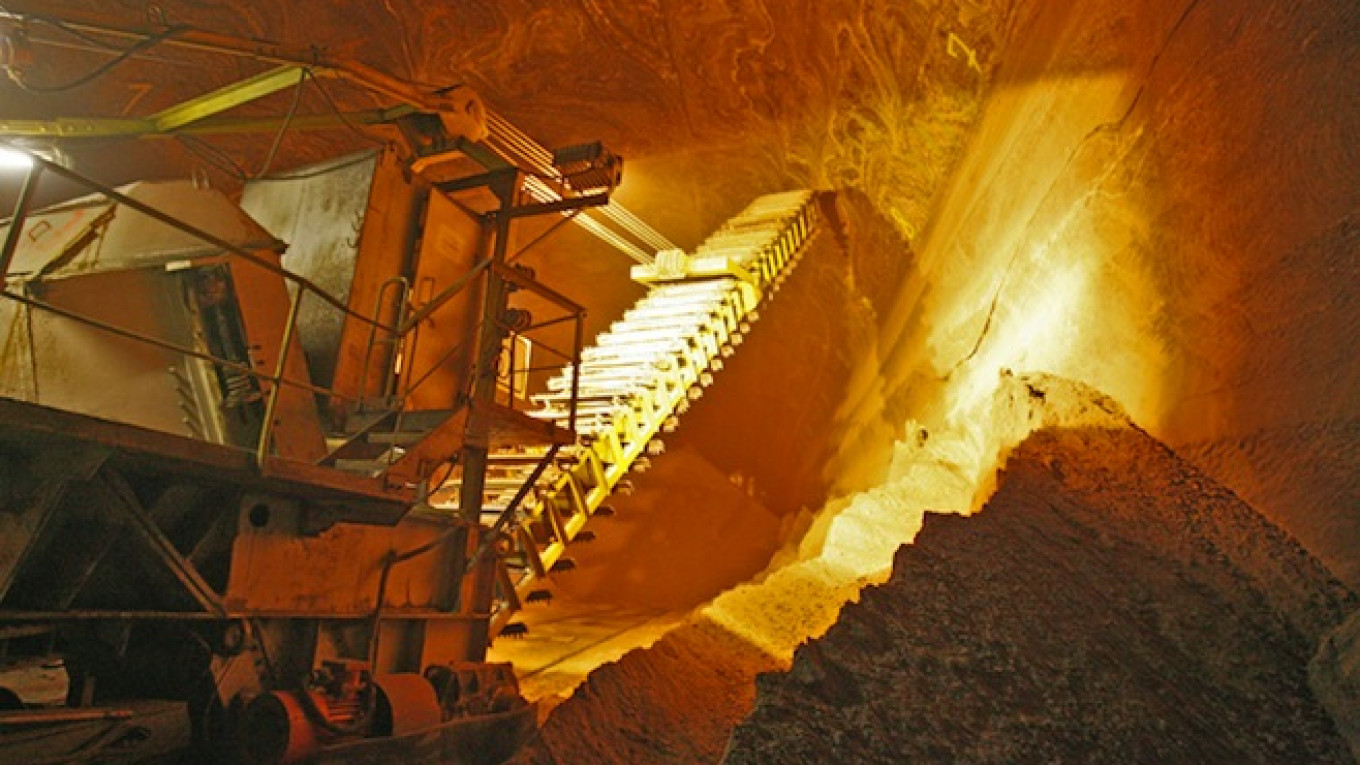A sinkhole has been found near Uralkali's Solikamsk-2 potash mine in Russia's Perm region, which suspended work a day ago after a water inflow, driving the company's shares down for a second day.
It was not clear how seriously the mine at Solikamsk-2, which accounts for a fifth of the company's capacity, would be affected. A water inflow and resulting sinkhole in 2006 shut another Uralkali mine in the same region permanently.
The world's largest potash producer suspended Solikamsk-2 mine work on Tuesday after high levels of brine inflow were detected.
The sinkhole, stretching 20 by 30 meters, was found 3.5 kilometers east of the mine, the regional emergency situations ministry said on Wednesday. It is located on an abandoned mine and does not pose a threat to people who live in Solikamsk town.
Officials and the company plan to ask members of the St. Petersburg Geology Institute to investigate the reason for the brine inflow and its relation to the sinkhole, the ministry added.
Uralkali declined to comment on how long the mine may be offline. The Solikamsk-2 plant has an annual capacity of 2.3 million tons of potash, a crop nutrient. Its other facilities, including a processing plant, are operating as normal.
"We estimate that up to 24 percent of the company's capacity might be affected, with another 20 percent of capacity in geographical proximity to the flooded mine," Renaissance Capital said in a note.
Flooding is a common problem for the potash industry. Two of Uralkali's Berezniki mines, also in the Perm region, have been hit since 1984.
It is unclear whether the situation at Solikamsk could be as serious as Uralkali's Berezniki-1 site, when in 2006 a mine was fully flooded within 10 days, Renaissance Capital said.
A brine inflow at Berezniki-1 created a wide sinkhole above the mine in 2006.
Under the current worst-case scenario, Uralkali could lose up to 30 percent of its 2015 net profit, Renaissance Capital said. However, it says that by stabilizing brine inflows even at accelerated levels, Uralkali could deal with the situation effectively.
Uralkali shares were down nearly 6 percent at 0818 GMT, extending losses of 9 percent the previous day and under performing a 0.1 percent rise on the Moscow index.
A Message from The Moscow Times:
Dear readers,
We are facing unprecedented challenges. Russia's Prosecutor General's Office has designated The Moscow Times as an "undesirable" organization, criminalizing our work and putting our staff at risk of prosecution. This follows our earlier unjust labeling as a "foreign agent."
These actions are direct attempts to silence independent journalism in Russia. The authorities claim our work "discredits the decisions of the Russian leadership." We see things differently: we strive to provide accurate, unbiased reporting on Russia.
We, the journalists of The Moscow Times, refuse to be silenced. But to continue our work, we need your help.
Your support, no matter how small, makes a world of difference. If you can, please support us monthly starting from just $2. It's quick to set up, and every contribution makes a significant impact.
By supporting The Moscow Times, you're defending open, independent journalism in the face of repression. Thank you for standing with us.
Remind me later.


